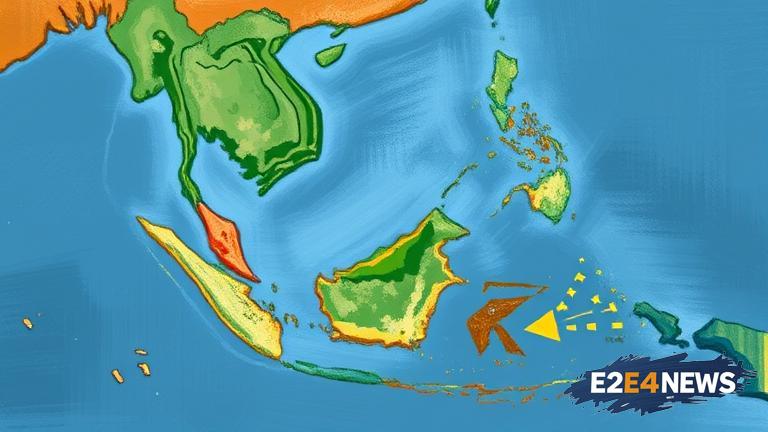The recent clashes between Thailand and Cambodia over border disputes have sparked concerns about the stability of the region. The conflict, which has been ongoing for years, has resulted in the loss of lives and damage to property. The situation is reminiscent of the long-standing dispute between India and Pakistan, which has also been a major concern for global stability. The Thailand-Cambodia conflict has been fueled by a combination of historical, cultural, and economic factors. The two countries have a long and complex history, with both sides claiming ownership of the disputed territory. The conflict has also been driven by economic interests, with both countries seeking to exploit the region’s natural resources. The situation has been further complicated by the involvement of external parties, including the United States. President Trump has weighed in on the issue, calling for calm and restraint from both sides. However, his comments have been met with skepticism by some, who argue that the US has a history of interfering in the internal affairs of other countries. The conflict has also raised concerns about the role of the Association of Southeast Asian Nations (ASEAN) in resolving regional disputes. ASEAN has been criticized for its inability to effectively address the conflict, with some arguing that the organization is too weak and divided to play a meaningful role. Despite these challenges, there are still hopes for a peaceful resolution to the conflict. Both Thailand and Cambodia have expressed a willingness to engage in dialogue and find a mutually acceptable solution. However, the road to peace will be long and difficult, and will require significant effort and compromise from both sides. The international community will also need to play a role in supporting the peace process, through diplomatic efforts and economic support. The conflict has also highlighted the need for greater regional cooperation and integration, to prevent similar disputes from arising in the future. This could involve the establishment of new regional institutions and mechanisms, to facilitate dialogue and cooperation between countries. The situation in Thailand and Cambodia is also a reminder of the importance of addressing the root causes of conflict, including poverty, inequality, and social injustice. By addressing these underlying issues, it may be possible to reduce the likelihood of conflict and promote greater stability and prosperity in the region. The conflict has also had significant humanitarian implications, with thousands of people displaced and affected by the violence. The international community will need to provide significant support to those affected, including food, shelter, and medical care. In conclusion, the Thailand-Cambodia conflict is a complex and multifaceted issue, which requires a comprehensive and sustained response from the international community. By working together, it may be possible to find a peaceful resolution to the conflict and promote greater stability and prosperity in the region.
